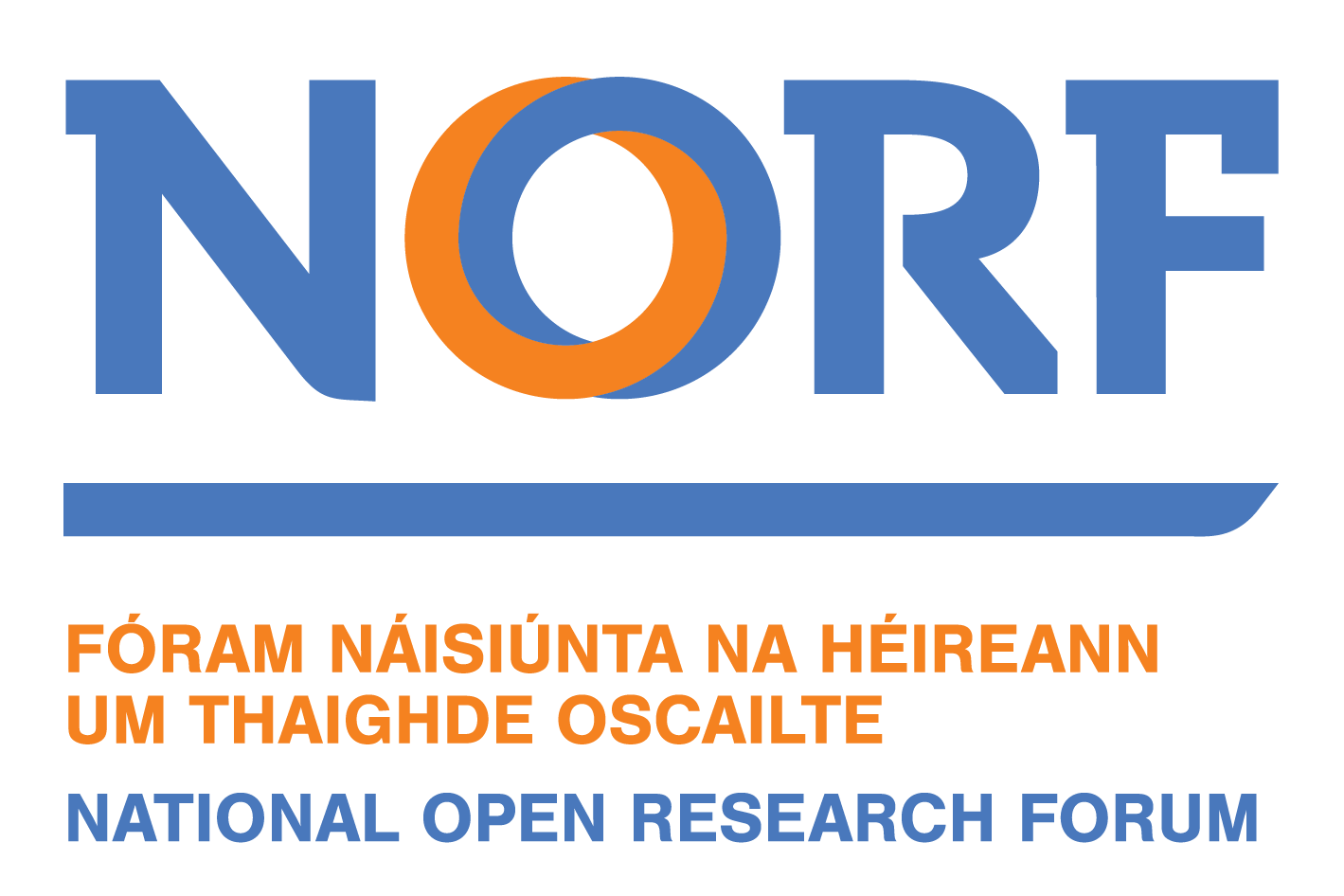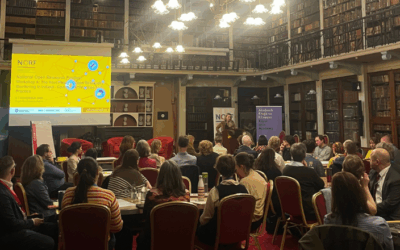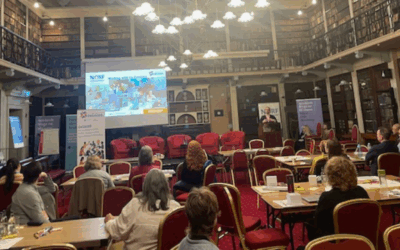In this blog post, Dr Dermot Lynott, Assistant Professor in Psychology at Maynooth University, and Lead Investigator on the NORF-funded National Open Research Training Programme introduces the work of the project and its overall goals for open research training in Ireland.
The programme is funded under the NORF Open Research Fund 2022. The aim of the programme is to develop a national open research training programme to enable researchers at all stages of their career, from early to late, as well as postgraduate students, to upskill in open research practices.
“Sunlight is said to be the best of disinfectants” Louis Brandeis, in Harper’s Weekly, 1913
When I talk to students about current research practices, they are frequently shocked to learn how closed our entire research ecosystem is. We have somehow managed to develop a system that is closed by default and by design. Publications are frequently behind paywalls (1), data sharing is infrequent (2-5), and where research data is available, it is often not fit for purpose (6-8). It’s a story repeated for research materials, code books, and any other research object that might be developed during the lifecycle of a research project. More often than not, our research is closed, rather than open.
And yet, opening up our research offers many advantages and opportunities. By adopting open research practices, researchers can increase the visibility and accessibility of their work, foster collaboration and knowledge exchange, and enhance the reproducibility and rigor of their findings. Such steps can ultimately lead to more efficient and effective research. This is before we even consider the increasing calls by governments and funders for a more open approach to research. What’s more, by being open and transparent, researchers signal that they have nothing to hide, earning greater trust and confidence in the scientific enterprise, from both fellow researchers and the public.
Ideally, we’d like our research processes to be more transparent, and our research outputs to be more accessible, which is why training and upskilling the next generation of Irish researchers in open research practices is so important. To help us in this goal, and funded by NORF, we are developing an open research training programme, with the working title of “TRaining for OPen research in an Irish Context” or TROPIC, for short (catchy, I know!). The aim of the training will be to upskill Irish researchers in open research practices, meaning that we will provide researchers with a set of skills, tools, and best practices that enable them to conduct their work in a more transparent, collaborative, and reproducible manner. This includes knowledge and skills linked to a range of key research concepts, including data management, open data, open access publishing, and reproducible workflows, among others. Figure 1 provides an overview of the goals of the project.
Of course developing such a national programme will not be without challenges. For example, discipline norms and open research practices in developmental psychology are not going to be the same as those in mediaeval Irish history, so we need to be aware of how some practices will be more applicable to some areas than others. By engaging with researchers, and incorporating discipline-specific approaches, we hope to ensure that the programme is accessible to all researchers, regardless of career stage or research discipline. Indeed, the initial phase of the project includes surveying Irish researchers to assess current levels of awareness and engagement in open research practices. Survey findings will help orient us to the areas that are in greatest need of attention and further training, and take into account important differences across disciplines. Through a combination of existing resources, and the development of new training materials, we will provide researchers with practical skills to apply open practices to their own research.
A further challenge is ensuring the long-term sustainability of the training programme. You don’t want a situation where training content is developed, never again updated, and left to become obsolete in some forgotten corner of the internet. To combat this, we are viewing the training programme as a living, evolving, programme, with content that can be flexibly applied, but that is also regularly updated. Content curators will oversee individual modules of the programme, ensuring they are maintained, and applying updates as and when necessary. Luckily, we have over 30 partners from 10 Irish institutions already involved, who bring a broad range of expertise, encompassing librarians, research support, and researchers from the sciences, humanities, and social sciences.
Figure 1 A summary of key goals of this open research training project
Once the initial programme development is completed, we will be piloting it as part of a Summer School, while, in tandem, developing a network of open research trainers. Trainers will be capable of delivering elements of the programme to researchers in their own institutions, thus increasing the accessibility of training opportunities nationally, as well as lightening the training burden on individual trainers.
We are looking forward to continuing our work on this project, and a big thank you to NORF and everyone who has contributed to getting us to this point. You can expect to hear from us in the near future with a survey on open research practices. And finally, if you’re interested in getting more involved in this project, either as a contributor to the project or in becoming an open research trainer, please add your details using this link.
References
1. Day and colleagues note that, although there are large subdiscipline differences, large swathes of medical publications are behind paywalls. Day, S., Rennie, S., Luo, D., & Tucker, J. D. (2020). Open to the public: paywalls and the public rationale for open access medical research publishing. Research involvement and engagement, 6(1), 1-7.
2. Miller et al. (2019) found that out of 42 large pharmaceutical companies, only 25% had a publicly available policy for sharing clinical trial data. Miller, J., Ross, J. S., Wilenzick, M., & Mello, M. M. (2019). Sharing of clinical trial data and results reporting practices among large pharmaceutical companies: cross sectional descriptive study and pilot of a tool to improve company practices. bmj, 366.
3. “Data Sharing: A New Editorial Initiative of the International Committee of Medical Journal Editors. Implications for the Editors’ Network” by Taichman et al. (2017) found that out of 77 medical journals that participated in a survey, only 12% required data sharing for publication.
4. “Data Sharing in Psychology: A Survey on Barriers and Preconditions” by Wicherts et al. (2011) found that only 39% of surveyed psychology researchers had ever shared their data, and only 15% had ever shared their data with a public repository.
5. “Data sharing and reanalysis of randomized controlled trials in leading biomedical journals with a full data sharing policy: survey of studies published in The BMJ and PLOS Medicine” by Rathi et al. (2018) found that out of 200 randomized controlled trials with full data sharing policies, only 55% actually shared their data.
6. “An investigation of the readability of datasets” by Cruz Rivera and Deakin (2018) found that out of 128 biomedical research papers with available data, only 24% of the datasets were rated as having good readability and were ready for reuse without further processing.
7. “Data Reuse and the Open Data Citation Advantage” by Piwowar et al. (2018) found that out of 1,000 articles with open data, only 31% of the data sets were in a usable format, with the majority requiring significant cleaning or preprocessing before they could be analyzed.
8. “Data sharing in psychology: A meta-analysis” by Vasilev et al. (2021) found that only 22% of studies that claimed to share data actually made it available, and of those that did make data available, only 55% provided data in a format that was usable without further processing.





